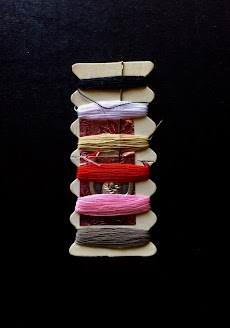It wasn’t like me, but I let myself be vulnerable to someone by sharing a personal feeling without knowing how the person would react. They could reject it and never speak to me again, or a deeper relationship could begin.
This is a big step when you’re grieving because you don’t have as many friends as before, because when you started talking about grief, some of your friends edged for the exits because death talk made them uncomfortable. Early in grief, when the darkness descends in mist, so many emotions are surging through you that you’re not sure what your main emotion is. You don’t want to frustrate your friends with inexactitude, but it seems like there are a dozen emotions all fighting for the top spot, so you talk about them all.
Most of my friends weren’t familiar with the landscape of grief—how it moved through the day or even how long it might last. Some listened to me ramble for a month before they said it was time to get over it and move on. I give them credit for staying around that long and listening to the crazy going on in my heart, because it couldn’t have been easy. We no longer talk to each other much because grief has revealed that the struggles and sorrow going on in people’s lives are more important to talk about than to limit our conversations to what is mundane and polite.
Grief opened a door into wholeness, and I didn’t want to close it.
Months later, I no longer had the driving need to tell everyone that the whole entire world had changed because of my wife’s death because only my world had changed. And even though grief’s emotions had calmed into singularities, for the most part, and I was now consumed with figuring out the context of grief, how it fit into the scope of human life, not everyone wanted to be friends with someone who wanted to banter about the philosophy, theology, or sociology of grief, or explore the limits of language in expressing a traumatic experience. But some did, and a new community formed that was populated with people who appreciated the mystery and grit and beauty of the journey of grief.
Because grief opened up my emotions, and I survived their intensity, I’ve come to value them. My friends like it, too, because now I seem like a real person, with frustrations and joys and my own unique strangeness.
I shared my feeling with this person because I was feeling it. I sat with it for a day to make sure it was real because it could change the nature of our relationship, although I didn’t think it would. In the past I would have let my feeling fade away as unimportant, which was a way of saying that I didn’t think my feelings were important. I don’t want to close down and go back to living the way I was.
I know I don’t know as much as I think I do, because I keep bumbling and stumbling around and making mistakes, but when I do, I want to be humble enough to ask forgiveness. I want to listen to others share their stories and grow kinder as I hear about the struggles they have to deal with.
Sharing where we are hurt and broken with each other are the threads that weave a community together. And maybe that’s everything.


No comments:
Post a Comment